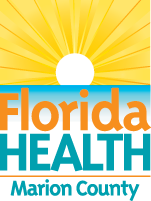Take precautions when facing hurricane-related health hazards
September 21, 2017
OCALA, Fla.—Many residents may be dealing with power or water issues after Hurricane Irma, but there are actions that people can take to protect themselves from hurricane-related health hazards.
Prevent food illness:
- Clean out refrigerators or freezers that have been without power since the storm. Those perishables are unsafe for eating.
- Throw away any food that may have come into contact with dirty water from flooding.
- If you are in an area that has experienced water issues and you use formula to feed your infant, use only ready-to-feed baby formula or prepare powdered or concentrated liquid formula with sterilized or bottled water. Use only sanitized bottles and nipples. Refrigerate unused prepared formula.
Prevent water illness:
- If you lost water pressure during the storm, you should take precautions against contaminated water, especially if you have a private well. If you are not sure if your water is safe, drink commercially bottled water.
- If your well has flooded, boil water until you are able to test it for bacteria. You may contact the Florida Department of Health in Marion County’s Environmental Health department at 352-622-7744 for a list of local water testing laboratories.
- When boiling water, make sure to heat it to a rolling boil for one minute to remove bacteria.
- Disinfect water by adding 8 drops of plain, unscented bleach per gallon of water; mix, and let it stand for 30 minutes. Repeat the procedure if the water is cloudy after 30 minutes.
- Keep open cuts or sores from being exposed to floodwater; floodwater may contain raw sewage. If your wounds are exposed, wash them with soap and clean water and apply antibiotic ointment after washing. If redness, swelling or drainage occurs, see a doctor.
- Don’t let children play in floodwater or with toys that have been in floodwater. Disinfect or throw away exposed toys; to disinfect, first mix ¼ cup of bleach with one gallon of clean water, then let it stand for at least 30 minutes and allow toys to air dry.
Prevent carbon-monoxide illness:
- Carbon monoxide is an invisible, odorless, tasteless gas and is highly poisonous. It can cause tiredness, weakness, chest pains, shortness of breath, nausea, vomiting, headache, confusion, impaired vision, loss of consciousness and death.
- Never use gas-powered generators or pressure washers indoors, not even in a garage. Do not burn charcoal or use gas grills inside a house, garage, vehicle, tent or fireplace.
- Open doors and windows, turn off gas appliances, go outside and call 911 or the poison control hotline (1-800-222-1222) if you think you have carbon monoxide poisoning.
Prevent fire damage and injury:
- Use battery-powered lanterns and flashlights. If you must use candles, put them in safe holders away from curtains, paper, wood or other flammable items.
Prevent heat exhaustion illness:
- Be on the lookout for symptoms of heat exhaustion. Warning signs of heat exhaustion include heavy sweating, paleness, muscle cramps, tiredness, weakness, dizziness, headache, nausea or vomiting, or fainting.
- Stay hydrated and cool when possible. Drink cold, non-alcoholic beverages, take cool showers or baths, wear lightweight clothing and rest in an air-conditioned environment.
- Be aware that heat exhaustion may lead to heat stroke. Severe symptoms include skin that is cool and moist, a pulse rate that is fast and weak and quick, shallow breathing. Seek medical attention immediately if symptoms last longer than one hour or you have heart problems or high blood pressure.
About the Florida Department of Health
The department, nationally accredited by the Public Health Accreditation Board, works to protect, promote and improve the health of all people in Florida through integrated state, county and community efforts.
Follow us on Twitter at @HealthyFla and on Facebook. For more information about the Florida Department of Health, please visit www.FloridaHealth.gov.For Media Inquiries
DOH-Marion Twitter
@FLHealthMarion
@FLHealthMarion
Florida Health
@HealthyFla
@HealthyFla





Connect with DOH